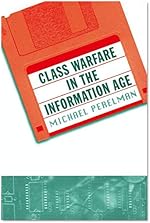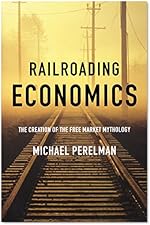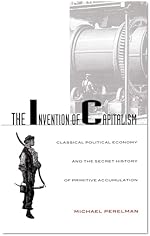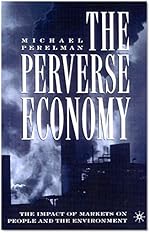Archive for May, 2014|Monthly archive page
Vietnam: Invitation to a Morass: Chapter 5 of the Matrix
The Matrix: An Exploration of the Dangerous Paradoxical Interactions
Between War, the Economy, and Economic Theory
Brief Introduction to the Introduction: The Paradox of the Matrix
What follows the introductory material is a chapter entitled:
Chapter 5: Vietnam: Invitation to a Morass.
The Matrix is an exploration of the intricate relationships between war, the economy, and economic thinking. Because of the complexity of our subject, we have tried to make our exploration more manageable by organizing our analysis around a simplified matrix, consisting of the natural world upon which life depends, together with the and three man-made subjects mentioned in the title, treated as separate pillars. Throughout history, the interrelations between these relationships have proved to be extremely dangerous, largely because of their paradoxical nature in which seemingly people in power confidently take actions that set off unexpected chain reactions with tragic consequences. The Matrix will explore that history in order to throw light upon the present.
Although people had already thought about economic matters in ancient times, the idea of an economy as a separate sphere of society had not yet developed. Instead, economic thinking was largely the domain of philosophers, such as Adam Smith, who was a professor of moral philosophy. Only later did economics become a separate subject of study. By the late 19th century, a few economists were beginning to frame their work as the science of economics ‑‑ a name intended to indicate an affinity with physics. Soon thereafter, supposedly scientific economic thinking acquired increasing authority, so much so that people often became convinced that they could disregard economic analysis at their own peril. Their fear may not have been well‑placed considering how often well‑regarded economic theories helped to create disasters.
The three pillars are intimately connected with one another. While the connections between war and the economy are more or less obvious, economists serve a peculiar role in linking the pillars of war and the economy by influencing the conduct of both war and management of the economy. At the same time, war, as well as economic activity, has influenced economic thinking. Continue reading
introduction to the introduction of my new book
I would appreciate any feedback.
The Matrix
The Matrix: An Exploration of the Dangers of the Paradoxical Interactions between War, the Economy, and Economic Theory
Brief Introduction to the Introduction: The Paradox of the Matrix
Throughout modern history, the relationships between war, the economy, and economic thinking have been both paradoxical and dangerous. Because of the wide-ranging nature of this exploration, we have organized our analysis of these relationships around a simplified matrix, consisting of the natural world upon which life depends and three man-made pillars: War, the Economy, and Economic Thinking.
Although people had already thought about economic matters in ancient times, the idea of an economy as a separate sphere of society had not yet developed. Instead, economic thinking was largely the domain of philosophers, such as Adam Smith, who was a professor of moral philosophy. Only later did the economics become a separate subject of study. By the late 19th century, a few economists were beginning to frame their work as the science of economics — a name intended to indicate an affinity with physics. Soon thereafter, supposedly scientific economic thinking acquired increasing authority, so much so that people often became convinced that they could disregard economic analysis at their own peril. That fear may not have been well-placed considering how often well-regarded economic theories helped to create disasters.
For a long time, war, the economy, and economic thinking have deeply affected each other. While the connections between war and the economy are more or less obvious, economists serve a peculiar role in linking the pillars of war and the economy by influencing the conduct of both war and management of the economy. At the same time, war, as well as economic activity, has influenced economic thinking.
In their effort to masquerade their ideas as a science, economists often label their theories as laws to implicitly identify their theories with sciences, such as physics. Of all the so-called laws of economics, the law of unintended consequences, which originates in philosophy rather than economics, might be the most consequential. For good reason, economists do not treat the law of unintended consequences as one of their technical laws, such as the law of supply and demand. After all, the law itself is an admission of ignorance, which conflicts with the certainty of economic propositions.
Instead, the law of unintended consequences is generally selectively invoked as a warning to those who might be tempted by policies that might interfere with the rational workings of markets that conventional economics presumes to be natural. In contrast, the law of unintended consequences is rarely, if ever, invoked regarding the free play of unchecked markets. Nonetheless, the combined effects of war, the economy, and economic thinking have had unintended consequences of catastrophic proportions.
The law of unintended consequences becomes more important because of the paradoxical nature of the Matrix, which reflects the ancient concept of the unity of opposites, often associated with the ancient Greek philosopher, Heraclitus, who hinted at such unity, writing about bows: “Thy name is life, thy work is death.” (In Greek, both the bow, an important weapon at the time, and life were synonymously called bios.). Two millennia later, the technology for casting church bells found a new use for what had been known as the “bell metal” in the production of cannons. The historian, John U. Nef, beautifully recaptured this new instance of Heraclitus’ irony: “The early founders, whose task had been to fashion bells that tolled the message of eternal peace contributed unintentionally to the discovery of one of man’s most terrible weapons” (Nef 1963, pp. 28). A similar unity of opposites concerns the mayhem of the battlefield, when lessons from battlefield medicine get taken up in general medical practice.
 Comments (1)
Comments (1)
 25 – The Confiscation of American Prosperity: From Right-Wing Extremism and Economic Ideology to the Next Great Depression
25 – The Confiscation of American Prosperity: From Right-Wing Extremism and Economic Ideology to the Next Great Depression 30 – Manufacturing Discontent: The Trap of Individualism in Corporate Society
30 – Manufacturing Discontent: The Trap of Individualism in Corporate Society Class Warfare in the Information Age
Class Warfare in the Information Age Railroading Economics: The Creation of the Free Market Mythology
Railroading Economics: The Creation of the Free Market Mythology Steal This Idea: Intellectual Property Rights and the Corporate Confiscation of Creativity
Steal This Idea: Intellectual Property Rights and the Corporate Confiscation of Creativity The Invention of Capitalism: Classical Political Economy and the Secret History of Primitive Accumulation
The Invention of Capitalism: Classical Political Economy and the Secret History of Primitive Accumulation The Perverse Economy: The Impact of Markets on People and the Environment
The Perverse Economy: The Impact of Markets on People and the Environment